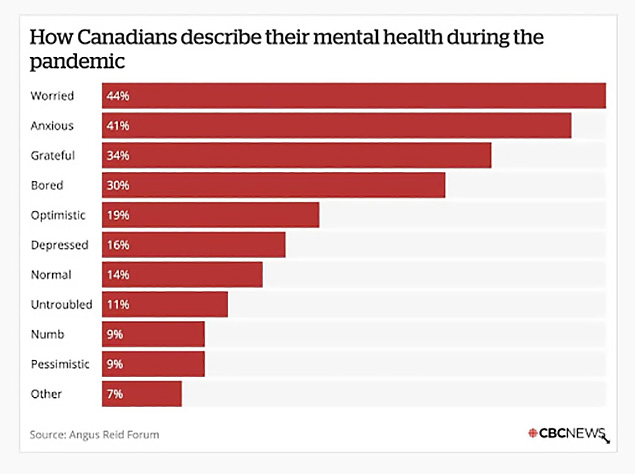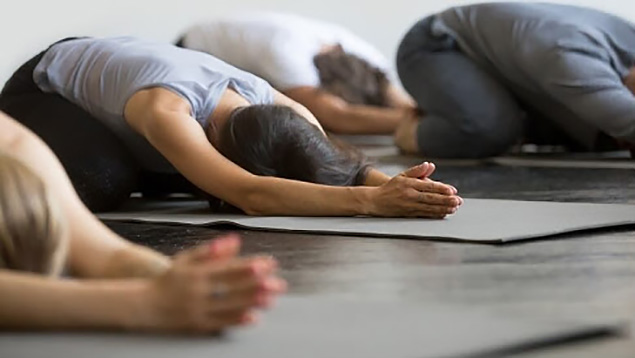Pollsters and pundits are quick to tell you that any public opinion survey is just a snapshot–nothing to be pondered too deeply.
So, while the latest Angus Reid Institute’s latest offering may well be bound to that shelf in the den or that clipboard in the kitchen, it’s a longshot to take up any space next to treasured souvenirs like that fab vacation last winter or Betty’s wedding two summers ago–the one where Uncle Bob, as usual, made a complete fool of himself…again.
Released today, the Reid survey is more than a little ugly.
Not all that surprising, given that it was only a couple of months ago that Canadians were set to cruise through the end of winter, accompanied by the hockey playoffs that traditionally point everyone to the joys of summer.
The survey, conducted earlier this month, found half of Canadians reporting that their mental health has gotten worse during the COVID-19 pandemic.
Ten per cent said their mental health had deteriorated “a lot.”
Asked to describe how they have been primarily feeling in recent weeks, the survey says, “Canadians are most likely to say they’re worried, (44%), anxious (41%) and bored (30%).”
About a third (34%) also said they are “grateful”.”
Less than 20 per cent of Canadians polled reported being optimistic when asked to survey their life in the past couple of weeks, and 16 per cent described themselves as depressed.

A handful appear to be hanging tough mentally: Eleven per cent said they were untroubled, 14 per cent reported feeling normal and nine per cent felt numb. Six per cent were happy.
“The conversation around mental health has been percolating since the shutdown occurred,” Angus Reid Institute’s executive director, Shachi Kurl, told CBC News’ Chris Arsenault in a story published today.
“When you have half of Canadians saying that their own mental health has deteriorated in the past several weeks and a significant segment of that group saying it has worsened a lot, that finding really jumps out.”
The survey comes a day after the Canadian Press’s Lee Berthiaume reported that the Canadian military is concerned about a decline in use of mental health services–so much so that that the chief of the defence staff, Gen. Jonathan Vance, has written an open letter to his troops urging them to reach out for help if it is required.

Chief of Defence Staff General Jonathan Vance arrives for the graduation ceremony at the Royal Military College of Canada in in Kingston, Ont. last May. Vance is concerned about a drop in military members’ visits to mental-health professionals. (Lars Hagberg/The Canadian Press)
“Use of help lines and access to mental-health professionals is at an all-time low,” Vance wrote.
“There may be some valid reasons for this, but I would like to encourage anyone who needs to reach out or access mental-health therapy to do so.”
Berthiaume writes that is is not immediately clear why troops are no longer calling the help lines or seeking support.
Earlier this month, CP reported that 20 service members took their own lives last year, the largest number of military suicides since 2014.
And studies have shown that military members and veterans have a significantly higher risk of suicide than the average population.
With files from CBC News (Christ Arsenault. Murray Brewster), The Canadian Press (Lee Berthiaume)







For reasons beyond our control, and for an undetermined period of time, our comment section is now closed. However, our social networks remain open to your contributions.